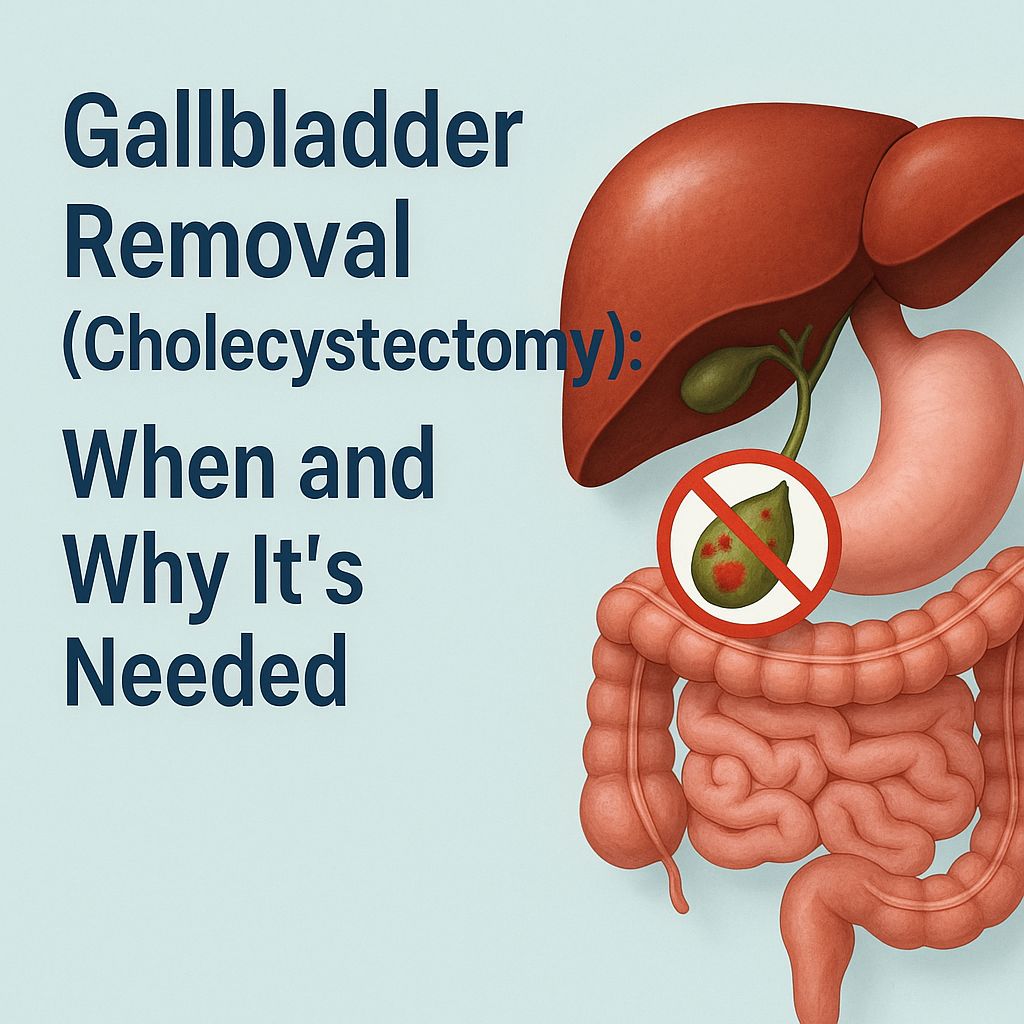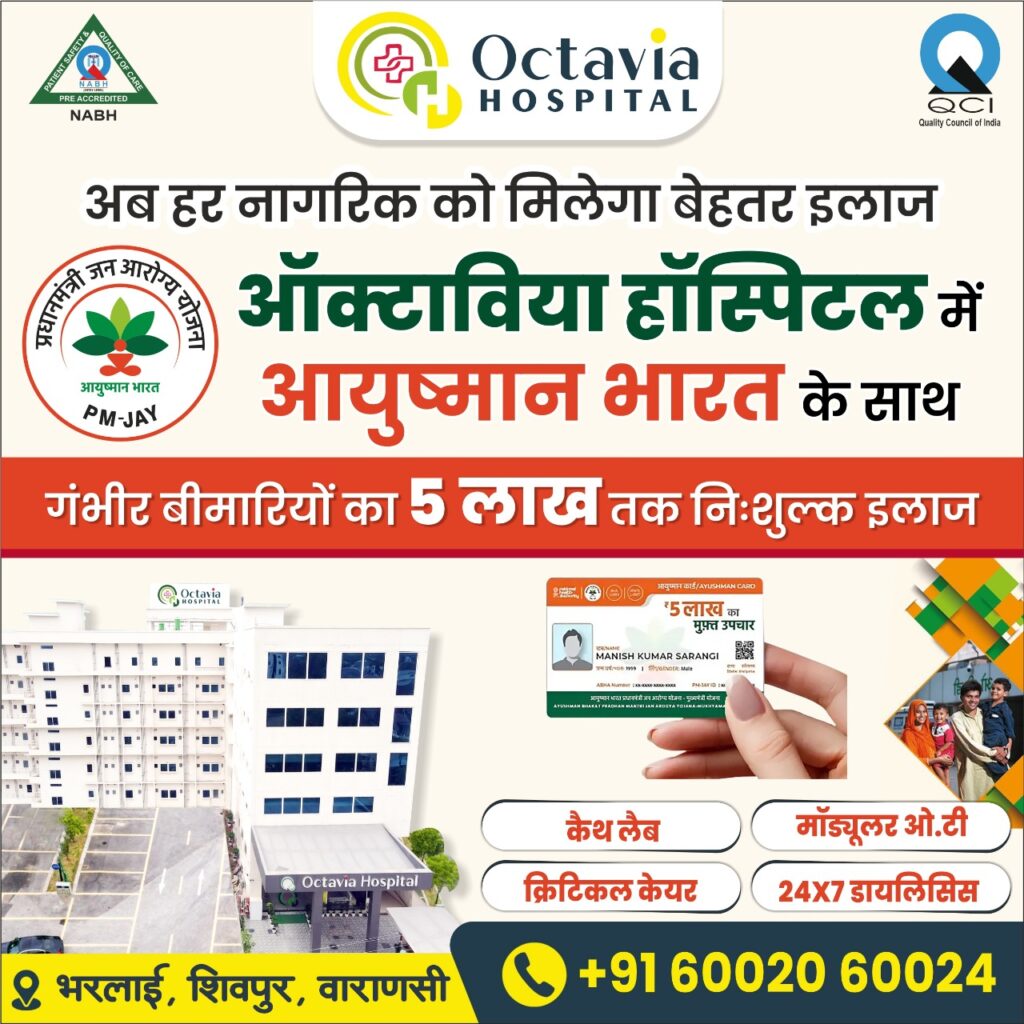By Dr. Md Najim, Octavia Hospital The gallbladder may be a small organ, but it can cause significant problems when things go wrong. Gallbladder removal, known medically as a cholecystectomy, is a common surgical procedure …

Gallbladder Removal (Cholecystectomy): When and Why It’s Needed
By Dr. Md Najim, Octavia Hospital
The gallbladder may be a small organ, but it can cause significant problems when things go wrong. Gallbladder removal, known medically as a cholecystectomy, is a common surgical procedure performed worldwide. But when is it truly necessary? And why might a doctor recommend it? Let’s take a closer look.
What Is the Gallbladder and What Does It Do?
The gallbladder is a small, pear-shaped organ located beneath the liver on the right side of the abdomen. Its primary role is to store and concentrate bile — a digestive fluid produced by the liver that helps break down fats in the small intestine.
While the gallbladder plays a supportive role in digestion, it isn’t an essential organ, meaning people can live normal, healthy lives without it.
Why Is Gallbladder Removal Needed?
The most common reason for removing the gallbladder is the presence of gallstones — hardened deposits of digestive fluid that can vary in size and number. These stones can block the flow of bile, causing pain and potentially leading to complications.
Here are the typical scenarios where a cholecystectomy is advised:
- Symptomatic Gallstones (Cholelithiasis)
If gallstones cause symptoms such as:
- Sudden, intense pain in the upper right or center abdomen
- Nausea or vomiting
- Pain after eating fatty meals
then removal of the gallbladder is usually recommended.
- Gallbladder Inflammation (Cholecystitis)
When the gallbladder becomes inflamed — often due to a gallstone blocking the bile duct — it can cause severe pain, fever, and infection. Cholecystectomy in such cases often becomes an emergency procedure.
- Gallstone Pancreatitis
Occasionally, a gallstone may pass into the bile duct and obstruct the pancreatic duct, leading to pancreatitis (inflammation of the pancreas), a serious and potentially life-threatening condition. Gallbladder removal helps prevent recurrence.
- Gallbladder Polyps
Polyps larger than 1 cm, or those causing symptoms, may necessitate removal of the gallbladder due to the small but present risk of cancer.
- Gallbladder Cancer
Though rare, gallbladder cancer often requires prompt surgical removal of the organ as part of treatment.
Types of Cholecystectomy Procedures
There are two main types of gallbladder removal surgeries:
- Laparoscopic Cholecystectomy:
A minimally invasive surgery performed through small incisions using a camera and special instruments. Most gallbladder surgeries today are done this way, offering faster recovery and less post-operative pain. - Open Cholecystectomy:
A traditional surgery involving a larger abdominal incision, typically reserved for complicated cases or when laparoscopic surgery isn’t feasible.
Life After Gallbladder Removal
Most patients recover well and return to normal activities within a week or two, especially after laparoscopic surgery. Some people might initially experience changes in digestion, such as softer stools or bloating, particularly after fatty meals. Over time, the body adapts to the absence of the gallbladder.
To support digestive health post-surgery:
- Eat smaller, frequent meals
- Limit high-fat and fried foods initially
- Gradually reintroduce fiber-rich and varied foods
Final Thoughts
Gallbladder removal is one of the most commonly performed and safest surgical procedures. While the idea of losing an organ can be unsettling, it’s important to remember that the gallbladder isn’t essential for life. Timely intervention often brings immense relief from pain and prevents serious complications.
If you’re experiencing persistent abdominal pain, digestive discomfort, or suspect gallstones, don’t hesitate to consult a healthcare professional. At Octavia Hospital, our experienced surgical and gastroenterology teams, led by experts like myself, are here to guide you through evaluation, treatment, and recovery.
Your health and peace of mind matter.
About the Author:
Dr.Md Najim is a General and Laparoscopic Surgeon at Octavia Hospital, specializing in minimally invasive procedures, including gallbladder, appendix, and hernia surgeries. Known for his patient-centered approach, Dr.Najim believes in empowering patients through education and compassionate care.






